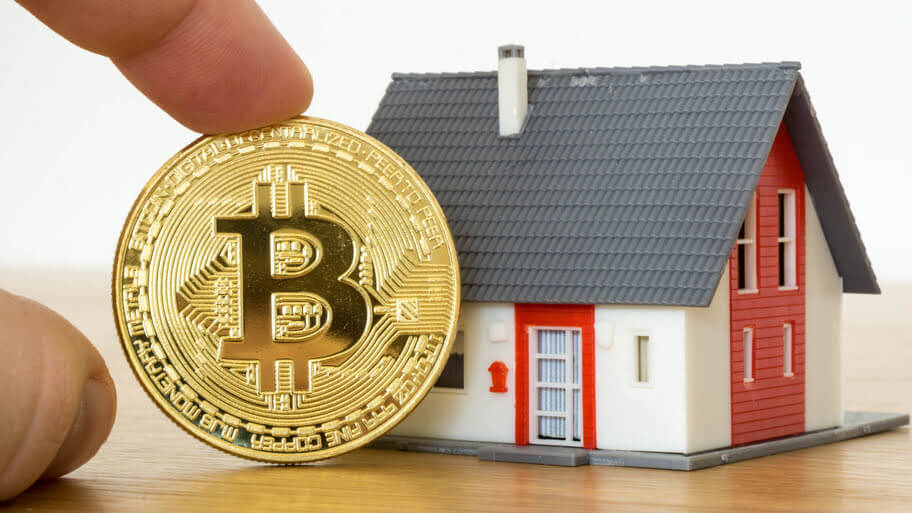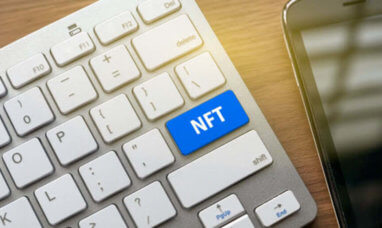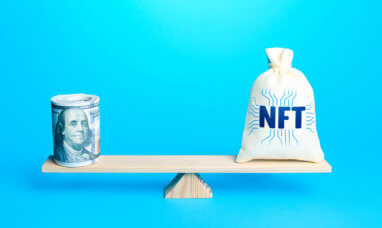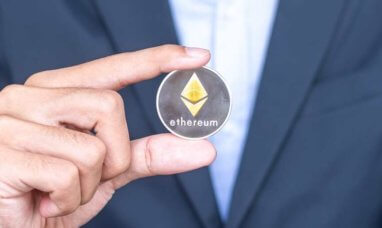Blockchain technology is capable of changing the real estate industry in a variety of ways. It could be used to create a ledger of property ownership, transfer records, and even store information about title searches and deed records. But the blockchain doesn’t just have the potential for innovations; it can also improve futuristic features like smart contracts in real estate transactions, in addition to reducing fraud. Not only does the blockchain make transactions more secure for buyers and sellers, but it also has the power to radically disrupt what you know about buying or selling a home today.
Blockchain technology allows the real estate asset tokenization to be far better than the traditional database technology we’re used to. It can add features like deduplication, integration with smart contracts, and on-demand title transfer.
Understanding the token economy and how blockchains and smart contracts revolutionize the economy ensures that we come to a phase where peer-to-peer exchanges, asset transfers, and value distribution become a reality. This will only be possible once several open protocols are created to allow anyone to issue tokens on public blockchains.
Here are some of the ways in which blockchain technology is changing real estate:
Purchasing Real Estate Property with Cryptocurrencies
The blockchain can be used to purchase real estate in the same way it is used to buy products, items, or services online. This means being able to conduct everything from searching for a home to closing on one, without the need for a third-party intermediary like a broker or title company. These transactions would be recorded and verified on the blockchain for everyone in the network, including you, to see and verify. This could significantly reduce costs and save time, while making real estate transactions more transparent and secure at the same time.
A smart contract is an example of how this works on a technical level: software executes an agreement on a self-executing blockchain, making it incredibly secure. Through a smart contract, we can avoid the issue of using a chaincode vs. a smart contract that is used in common languages like Solidity and Ethereum.
Creating New Deeds
Real estate owners can use smart contracts to create new deeds for their properties on the blockchain. This would mean that, for example, you can instantly transfer ownership to your new homeowner after buying a house, rather than having to provide information about the transaction through a long process of sending paper records and hard copies for others to verify.
Without paper records, all network members would be able to check facts on the blockchain independently, so no one could lie or cheat about how you initially came into ownership of your property.
Dispute Resolution on Deed Records
Millions of people use real estate agencies today as part of the real estate transaction process. Without the need for a third party, the blockchain could replace these agencies in greater numbers. The blockchain would allow you to create a smart contract for dispute resolution by recording every transaction you make when buying or selling real estate.
This process would be facilitated on smart contracts that identify all parties involved in the transaction at the time of registration; this includes the current owner, seller, buyer, and everyone else involved in your transaction. Comparing chaincode vs smart contracts, you will realize that chaincode is a specific set of instructions that runs on the blockchain, while smart contract is a broader term that can vary from system to system.
Title Insurance Premium Reduction
Real estate agencies typically charge thousands of dollars every year to verify title claims through deeds, records searches and use other methods to determine whether someone coming into possession of your property is authorized to own it. Mortgage insurance companies also charge an annual fee that is paid into escrow accounts for title searches.
Blockchain technology could be used to reduce or eliminate these fees, saving thousands of dollars each year for users of the real estate blockchain. By using a real estate asset tokenization process, title searches and ownership transfer can be conducted nearly instantaneously through a decentralized database system.
Eliminating Paper Record Storage Costs
Paper records are notoriously expensive to store, and most people would like to have the choice to upload many more documents on blockchains than they already do today. Some companies are even experimenting with storing digitized deeds on blockchain technology today, due to the low storage space costs. A full title search through the blockchain would be extremely inexpensive, because it would effectively make all your deeds digitally available on the network.
Automatic Property Tax Collection
Some counties already use blockchain technology for this purpose, but the concept could also be used at the national or even global level. This would mean that tracking property taxes would become much more streamlined and efficient. Governments could automate tax collection for individuals and businesses alike, as regulators can track who it is collecting taxes from, whether they are paying on time, their payment amount, and so forth.
Record Keeping of Title Information
Blockchain technology could help lower the cost of maintaining a complete and accurate title record for each property – something that real estate companies already do today. The blockchain could allow you to upload a deed for your property to be identified as yours on the blockchain. You could also use this method to store documents related to title searches and other information about your property’s history on the blockchain.
This would mean that anyone viewing these records would not have access to any private information, such as what type of property is being searched and which parts of the records and documents are available only through a lawyer or other professional intermediary.
Incorporating Property Ownership
Some companies already help you do this, but blockchain technology could make this process less time-consuming and more transparent to stakeholders like investors, banks, and others. For example, when creating your company’s corporate structure, you could create a smart contract that automatically transfers your real estate property ownership to your company once it is created. This would allow you to immediately transfer all property information to another party without worrying about dealing with paperwork.
Fractional ownership programs allow you to purchase limited ownership of properties that multiple owners generally hold. Some fractional ownership pros and cons will enable you to own a significant amount of property without fully owning it.
Transferring Deeds
For many people around the world, giving their property away for free is not an option. In this case, a smart contract could be used to sell your property for a price that won’t allow you to trace the property’s history back to its original owner. In addition, if you choose to sell that property later, you can transfer ownership rights to someone else by creating a smart contract specifying the transaction details. This would make property ownership easy and efficient, as it could eliminate many of these issues from your daily life for those with property records on the blockchain.
Understanding the fractional ownership pros and cons enables you to make the best decision while choosing the best way to invest in real estate.
Final Thoughts
Blockchain technology can change the way we think about property ownership. By keeping records on a decentralized network, you can streamline many of these processes involving owning and selling property. Whether this innovation will create more transparency or big corporations will use it to take advantage of others, only time will tell.








